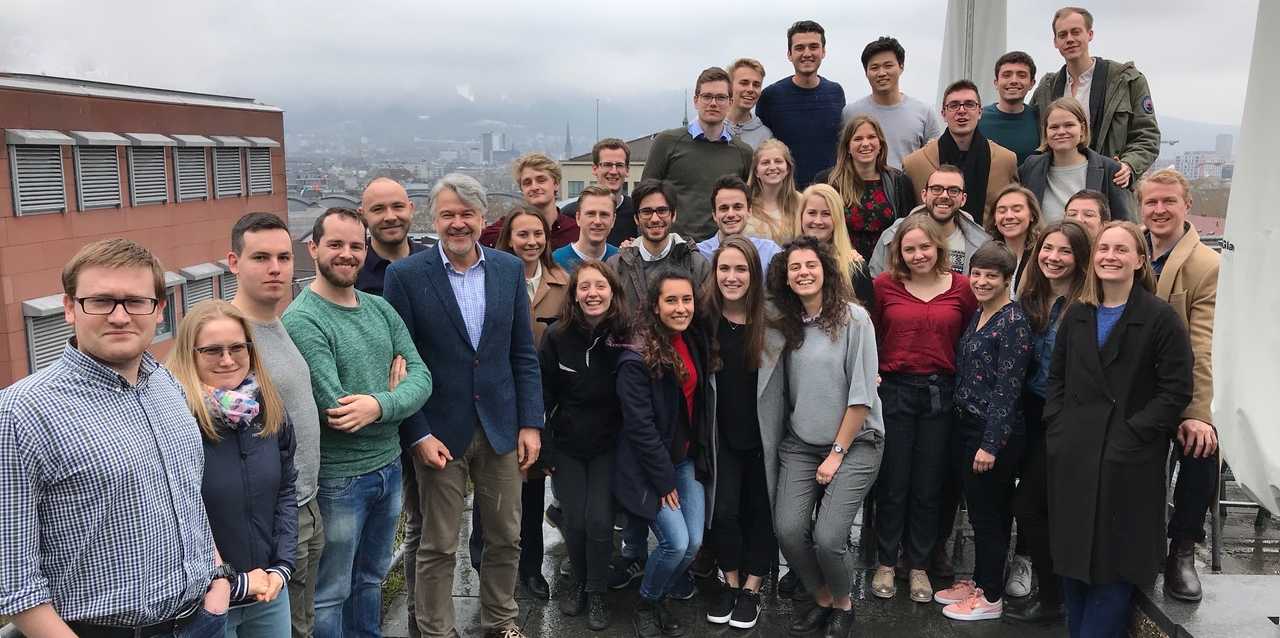IDEA League Challenge meeting hosted by ISTP – Addressing complex societal challenges through policy and planning
“Do you know how to navigate the real-world systems in which technologies live?” Thirty students from five technical universities across Europe were confronted with this question at the start of a three-day meeting. This was the last of four meetings, the previous of which had been hosted by Politecnico di Milano, Chalmers University of Technology and RWTH Aachen University. The event at ETH Zurich was hosted by the Swiss Mobility Lab between Friday 12th and Sunday 14th April.

“Do you know how to navigate the real-world systems in which technologies live?” Thirty students from five technical universities across Europe were confronted with this question at the start of a three-day meeting. The – late-Bachelor and early-Master – students were at the outset of an intense three days dedicated to learn about the complexities and implications of integrating new technologies in society. The ultimate purpose was for them to improve their understanding on how to address such challenges through policy and planning.
This was the last of four meetings, the previous of which had been hosted by Politecnico di Milano, Chalmers University of Technology and RWTH Aachen University. The event at ETH Zurich was hosted by the Swiss Mobility Lab between Friday 12th and Sunday 14th April. Hence, the thematic focus of the meeting was mobility.
The first day, the students met experts from the Swiss Federal Offices of Energy (SFOE) and Roads (FEDRO). Their talks, featuring their perspective on transitions towards emission-free and automated mobility in Switzerland, raised a lot of interest among the students. A visit to ‘Trapeze’ in Neuhausen am Reihnfall followed in the afternoon. This company and their spin-off AMoTech, develop public transport control systems that allow for the integration of self-driving vehicles into traffic. The discussions with the managing director and a project manager of AMoTech offered a view into the challenges and opportunities of incorporating autonomous vehicles into today’s traffic through the eyes of a tech company. On Saturday and Sunday, the students had to face specific challenges of transitioning towards electric and autonomous mobility (e.g., relating to public acceptance, privacy risks, or impacts on infrastructure and urban planning). Working in groups and coached by a postdoc and doctoral students from the Swiss Mobility Lab, they applied design thinking to develop solutions to their challenges based on policy and planning approaches. The teams finally had to present their solution with a pitch to policy-makers, and face the challenging questions of their peers, coaches and Prof. Thomas Bernauer.
Overall, the meeting was very successful in combining a programme that contributed to their systemic thinking with regards to technology, and an excellent social atmosphere full of interesting discussions across the different fields of expertise of the students. Given the positive feedback provided by the students and their enthusiasm throughout the three days, the ISTP will be happy to host the event again in spring 2020, for the third consecutive year.
For more information on the Swiss Mobility Lab, please check the ISTP homepage.